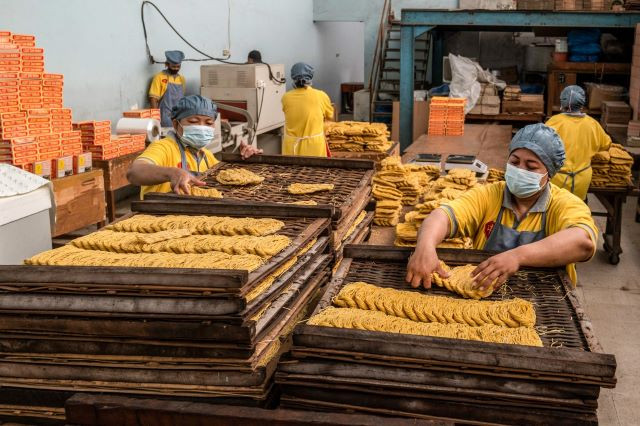Popular Reads
Top Results
Can't find what you're looking for?
View all search resultsPopular Reads
Top Results
Can't find what you're looking for?
View all search resultsEditorial: SBY still doesn't get it
President Susilo Bambang Yudhoyono (SBY) alarmingly said last week while international oil prices continued to surge closer to US$150 per barrel that rising oil prices had reached a critical point and that they could cause fuel and electricity subsidies this year to explode to more than $30 billion
Change text size
Gift Premium Articles
to Anyone

President Susilo Bambang Yudhoyono (SBY) alarmingly said last week while international oil prices continued to surge closer to US$150 per barrel that rising oil prices had reached a critical point and that they could cause fuel and electricity subsidies this year to explode to more than $30 billion.
Yet no less alarming was the seeming hopelessness that the President portrayed in his evaluation of the situation. Even though the wasteful burning of money through fuel subsidies has increased steadily to exceed even the combined spending on education, health and other social services, the President still doesn't get the real message.
How morally irresponsible it is for the government to allocate almost one third of the state budget for such wasteful spending on middle-income and rich people when not even half of that amount is designated for education, basic health, social services and food subsidies.
Yudhoyono still stubbornly refuses to realize that gradually bringing domestic fuel prices closer to international market levels is the only way to address the energy crisis.
He was quoted by mass media as saying in Palembang, South Sumatra, that "The government cannot simply raise fuel prices again and again". He instead urged the government and the parliament to work together to tackle the problem and called on the people to economize on energy.
Yudhoyono's comments are typical of a President who is facing reelection. He is attempting to avoid unpopular, painful measures, even at the big expense of the whole economy.
Like most other politicians and members of parliament, the President saw the fuel crisis mostly as a temporary fiscal problem that would eventually go away when oil prices receded.
The President seems unaware that the fuel crisis is threatening to increase fuel and electricity subsidies and the fiscal deficit to unsustainable levels with devastating impacts on the country's sovereign risks, inflation and the strength of the rupiah.
He also missed the point that the fuel crisis we are now facing is the latest warning for us to act firmly and quickly to improve energy efficiency, conservation and diversification. And the most effective way to achieve all this is to sell energy at its economic costs.
The biggest mistake the President made in late May when he increased fuel prices by around 28 percent was rising the prices by too little, and too late. The new prices were based on a state budget oil price assumption of between only $110 and 120 per barrel.
Moreover, the fuel policy was not supplemented with additional measures to gradually phase out within a fixed schedule fuel subsidies for private cars, which use the bulk of the subsidies.
The consequences of the haphazard, half measure were that within just a few weeks after the price increase, the gap between domestic fuel prices and international markets had again widened to over 40 percent, which is a very lucrative margin for smugglers and offers big incentives for industrial users to misuse subsidized fuels.
Indeed, while the May 24 fuel price increase has strengthened inflationary pressures, incited protest demonstrations and even prompted the House of Representatives to exercise its right to challenge the government's decision, the hike had a negligible impact on the government's fiscal situation.
Yet more worrisome is that the painful measure had no positive impact on energy efficiency, conservation or diversification, which were the basic objectives of the energy policy.
The President reiterated last week the vital importance for diversifying energy sources by adopting alternatives, including biofuel based on jatropha. However, his message was meaningless considering the huge subsidies which make the prices of fossil fuels artificially low.
Likewise, his appeal to the people to save fuels also sounded hollow, and not credible.
It is simply economically unfeasible and politically irresponsible to maintain such a huge sum of fuel subsidies which are anyway enjoyed mostly by the middle and high-income groups.
It is likewise morally irresponsible for the government to allocate almost one third of the state budget for such wasteful spending when there is such a pressing need for the money to be spent on other services.
Like in most other countries, government-fixed price curbs are not only ineffective but also counterproductive because both producers and consumers get the wrong price signals and consequently the forces of supply and demand do not work normally.









